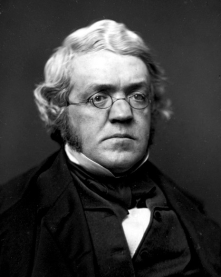.jpg) article icon
article icon
OpenLearn Ireland
Supporting Mental Health Through Online Music Fandoms
What are online fandoms? What are the benefits of joining one – and how to make it happen? Read and watch this personal exploration of online music fandoms by Dr. Lauren O'Hagan.
 article icon
article icon
History & The Arts
100 Years of Votes for (some) Women
2018 marked the centenary of the 1918 General Election which allowed some women over the age of 30 to vote for the first time ever. Explore suffrage and women's history here...
 article icon
article icon
History & The Arts
A Victorian Christmas: Thackeray goes to the pantomime
In this extract from Roundabout Papers, William Makepeace Thackeray describes a festive entertainment which takes liberties with history. Not that Thackeray is above taking a few liberties of his own...
 article icon
article icon
History & The Arts
Women in the arts: a collection of free resources
Explore our collection of free resources focusing on women’s participation in various areas of the world of the arts.
 article icon
article icon
History & The Arts
Jediism: Will the Real Religion Please Stand Up
Can Jediism be classed as a religion, or is it merely a cultural fad? Check out our article then watch a short video on its characteristics.
 article icon
article icon
History & The Arts
Hanukkah: a festival of light
What's Hanukkah all about? And how do Jewish people celebrate it?
 article icon
article icon
History & The Arts
What have big meals got to do with Christmas?
We take a look at why feasting, giving gifts and spreading cheer goes hand in hand with the festive season.
 article icon
article icon
History & The Arts
'Can anybody hear us?' The Day After, 40 years on
Luc-André Brunet and Mark Fryers discuss the artistic and historical implications of a landmark film and its relevance to conflicts today.
 article icon
article icon
History & The Arts
What is Diwali?
Diwali is a festival of lights and celebrates the triumph of light over darkness – but where does this stem from? Suzanne Newcombe looks at the religious festival’s origins in this article.
 free course icon
level 1: introductory icon
free course icon
level 1: introductory icon
History & The Arts
Exploring Homer’s Odyssey
This free course introduces Homer’s ancient Greek epic poem, the Odyssey, which tells of Odysseus’ long journey home after fighting in the Trojan War, and his eventual reunion with his wife Penelope. Odysseus is famous for his cunning and his courage, and for the exploits he undertakes on his travels; meanwhile Penelope is renowned for her ...
 article icon
article icon
History & The Arts
So you've written your novel, what now?
Literary agent Joanna Swainson shares her top five tips for hooking an agent.
 article icon
article icon
Health, Sports & Psychology
An introduction to European crime fiction since 1945
The popularity of crime fiction is on the rise. Bill Alder looks back and charts the history of this genre in post-1945 Europe.